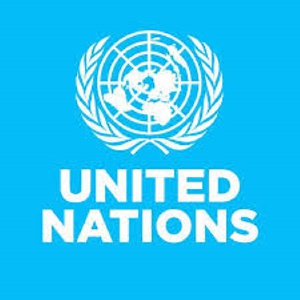Each United Nations (UN) Agency office in Ghana is focusing on supporting the implementation of international conventions and accords which the country had ratified, Dr Christine Evans-Klock, the UN Resident Coordinator, has said.
She said human rights were, of course, a bedrock priority for the UN; citing UNICEF in protecting the rights of the child and UNFPA in protecting rights to sexual health and education.
Others are UNESCO in assuring the right to education, the World Health Organisation in right to health care, UNDP in supporting democratic rights and access to justice, the International Organisation for Migration in ensuring the rights of migrants and the UNHCR in ensuring the rights of refugees.
Dr Evans-Klock stated this in her keynote address at the Ghana Universal Periodic Review (UPR) In-Country Pre-Session meeting between the Diplomatic Community and human rights organisations in Accra.
The UPR is a mechanism established by the UN to peer-review, and to examine the human rights records of each Member State every five years.
The meeting was on the theme: “Diplomacy Meets Human Rights: Ghana’s Human Rights Record (UPR: A Process, Not an Event)”.
It was organised by the POS Foundation, which currently serves as the Secretariat of the Ghana Human Rights NGOs Forum, in collaboration with KASA initiative Ghana, UPR Info Africa Office and the Office of the United Nations in Ghana; with funding from the Danish International Development Agency.
The participants discussed the status of human rights in Ghana as part of the ongoing UPR, which tracks the progress of Ghana’s human rights obligations and commitments.
Ghana’s human rights record was reviewed at the Human Rights Council’s UPR in 2012 and 2008.
In reaction to the 2012 report, Ghana received 150 recommendations from 63 States.
Out of these recommendations, the majority was accepted, and 25 noted.
The purpose of the workshop is to dialogue with participants on the UPR process, the UN mechanism and efficient reporting on its operations.
This is in preparation towards Ghana’s review by the UN Human Rights Council in November this year at Geneva, Switzerland.
Dr Evans-Klock said the UN agencies across all their work promote gender equality, women’s empowerment, and the rights of persons with disabilities; adding that the Office of the High Commissioner for Human Rights in Dakar was their close partner in these efforts.
She expressed her appreciation, and the appreciation of all the UN agencies working in Ghana, for the work of the NGOs and Civil Society Organisations, and in particular the work of the Ghana Human Rights NGOs Forum.
"I really commend you for your initiative, organisation, and commitment to expanding voices of all Ghanaians on human rights issues and giving them an opportunity to be heard in the UN Human Rights Council through the UPR," she added.
She said every Member State of the UN had the opportunity to share its progress in ensuring human rights for all and to speak candidly about its remaining challenges and how it was responding to gaps and needs for improvement identified in previous Reviews.
She said: “Every country is striving to improve its human rights records. The UPR is based on the principle that human rights are universal and all people everywhere are entitled to them: We all have a right to live in dignity”.
She pointed out that it was part of Ghana’s reputation for rule of law, for democratic principles, for repeated success of electoral processes; and that it takes a candid and open look at its own human rights records, successes and areas for further improvement, and that it openly consults with human rights.
Ms Tove Degnbol, the Ambassador of Denmark to Ghana, lauded Ghana’s good track record on human rights; stating, however, that all countries could improve.
Mr Jonathan Osei Owusu, the Executive Director, POS Foundation, said Ghana had all the laws and recommendations, however, implementation had always been a problem; hence the need for the meeting to know whether the recommendations made in the 2012 review were being enforced.
He said POS Foundation, and other human rights organisations wanted to ensure that the Government was doing the right thing and putting in the right mechanisms to address human rights issues.
Mr Gilbert O. Onyango, UPR Regional Representative for Africa, lauded Ghana’s free and open space for the CSOs; adding that this was a true testament to the Ghana Government’s efforts to ensure that human rights were promoted.
Naya Yopeyo Dadetsu, the Queenmother of Dodowa, who chaired the function, said despite the huge successes Ghana had chalked in democratic governance, there was still more to be done in the areas of human rights.
General News of Wednesday, 13 September 2017
Source: GNA













